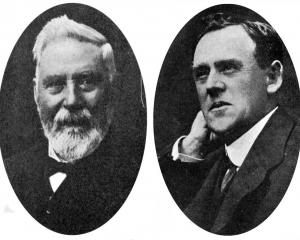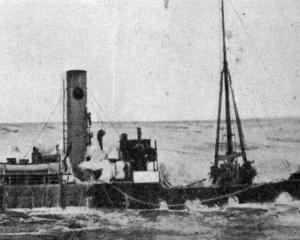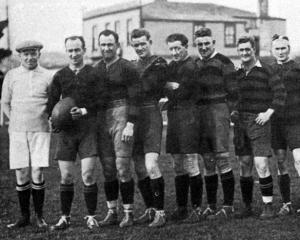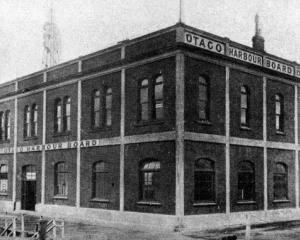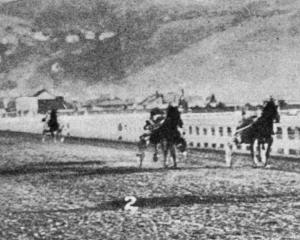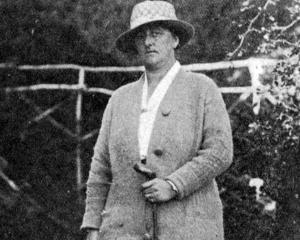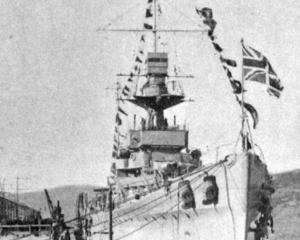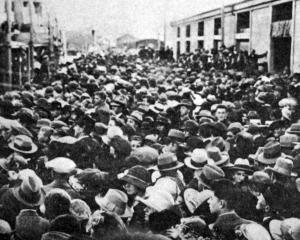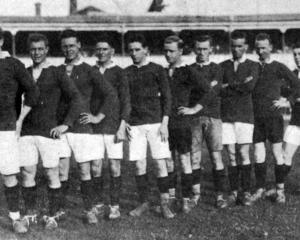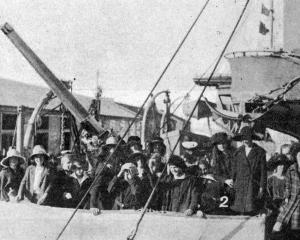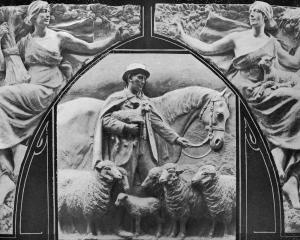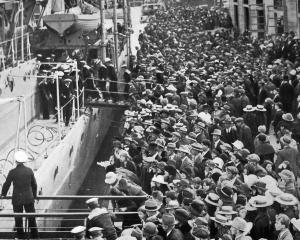The introduction of decorated stands and providing attractions in the town created quite a holiday feeling in the air, and was the means of attracting hundreds of people into the town during the day.
At an early hour in the morning numbers of officials of the association were at work seeing that everything was being arranged in connection with the stands, and shortly after the lady collectors appeared on the scene to catch the early wayfarer.
Too much praise cannot be bestowed on the large army of collectors, who worked assiduously until a late hour in the evening.
The stands added quite a gay appearance to the city, and a citizen remarked to the secretary that it reminded him of some of the towns on the Continent that are now being devastated by the Germans.
A few showers of rain fell in the morning but in the afternoon and evening the weather was fine.
The citizens turned out in large numbers, and the streets, in the evening especially, were very busy.
The presence of the school fife and drum bands was very welcome.
The boys were untiring, and it may be a slight recompense to them to know that the public were delighted with their music.
The city was gay on Saturday.
In response to the request of the Mayor (Mr J. B. Shacklock) many buildings displayed flags.
One large establishment in George street showed from its roof the flags of Britain, Belgium, and Russia.
The presence of the fife and drum bands added a martial strain to the proceedings, and the many thousands of people who thronged the streets, notably in the evening, contributed all the more readily under the patriotic inspiration of the music.
In these days of warfare it is well to have a cheering note struck in our midst, and the Hospital Saturday Association certainly achieved that end on Saturday.
The sum of 1350 was collected in the city and suburbs, and to this amount the country collections have yet to be added.
Last February - the collection was taken in that month, having been postponed from November on account of the strike - the amount taken in the city and suburbs and country was 870.
As in former years, Mr E. S. Wilson (secretary) worked untiringly, and did not spare himself in his efforts to assist the collectors and helpers.
He was courteous and obliging to all, and kept an admirable grasp of the whole arrangements, his assistance being of special value to the representatives of the press.
• Last year, as well as previously, the New Zealand Government chartered a liner to bring out some hundreds of immigrants to this country from Home, but it is considered unlikely (says the Wellington Post) that such a course will be taken this year.
However, large batches of immigrants are being brought out from the Old Country by each mail steamer, and, according to advices received, the liners Mamari and Somerset have on board some hundreds of third-class passengers.
These include ''assisted'' immigrants as follow:- By the Mamari, 22 domestic servants, 12 farm labourers and 99 separated relatives; by the Somerset, 13 domestic servants, nine farm labourers, and 42 separated relatives.
There is a notable decrease in the number of farm labourers coming, this being accounted for by the fact that many have enlisted in the army. - ODT, 30.11.1914.
• COPIES OF PICTURE AVAILABLE FROM ODT FRONT OFFICE, LOWER STUART ST, OR WWW.OTAGOIMAGES.CO.NZ

